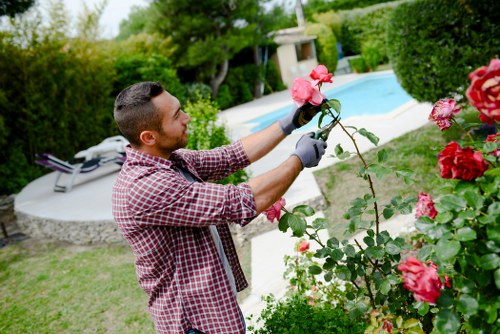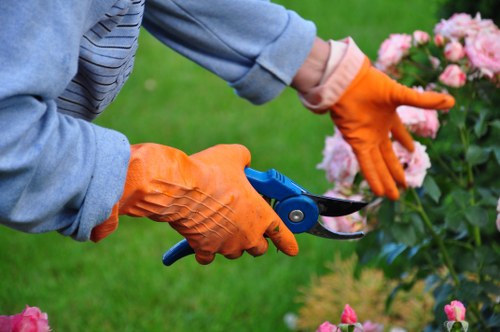Driveway Restoration in Plumstead: Revitalize Your Home’s Entrance

Your driveway is more than just a pathway to your home; it’s the first impression visitors have of your property. Over time, driveways can suffer from wear and tear due to weather conditions, heavy traffic, and lack of maintenance. In Plumstead, driveway restoration has become a popular solution for homeowners looking to enhance their property’s curb appeal and functionality.
Driveway restoration involves various processes aimed at repairing and renewing your existing driveway without the need for a complete replacement. This eco-friendly and cost-effective approach not only saves you money but also contributes to the sustainability of your neighborhood.
Understanding the benefits and steps involved in driveway restoration can help you make an informed decision. Whether you have a concrete, asphalt, or gravel driveway, restoration can breathe new life into your outdoor space.

Why Choose Driveway Restoration?
Driveway restoration offers numerous advantages over complete replacement. Here are some compelling reasons to consider restoring your driveway in Plumstead:
- Cost-Effective: Restoration is generally cheaper than replacing your driveway entirely.
- Eco-Friendly: It reduces the need for new materials, minimizing environmental impact.
- Quick Process: Restoration can often be completed faster, minimizing disruption to your daily routine.
- Enhanced Curb Appeal: A well-restored driveway can significantly improve the appearance of your home.
These benefits make driveway restoration an attractive option for many Plumstead residents.
Moreover, restoration can address specific issues such as cracks, potholes, and surface deterioration, ensuring your driveway remains safe and functional.

The Restoration Process
Driveway restoration typically involves several key steps, each essential to achieving a durable and attractive finish.
1. Assessment and Planning
Before starting, a thorough assessment of your driveway is conducted to identify existing problems and determine the best restoration approach. This includes evaluating the driveway’s condition, material, and the extent of damage.
2. Cleaning
Cleaning is a crucial step that removes dirt, debris, and old sealants. This ensures that the restoration materials adhere properly and last longer.
Techniques Used:
- High-pressure washing
- Steam cleaning
- Chemical cleaning agents
Proper cleaning sets the foundation for a successful restoration.
3. Repairing Damage
Cracks, potholes, and other damages are repaired to create a smooth and even surface. Depending on the material, different repair methods are employed.
Common Repairs:
- Concrete resurfacing
- Asphalt patching
- Gravel replenishment
Addressing these issues prevents further deterioration and extends the lifespan of your driveway.

Materials Used in Driveway Restoration
The choice of materials plays a significant role in the success of driveway restoration. Here are some commonly used materials in Plumstead:
Concrete
Concrete driveways are known for their durability and low maintenance. Restoration involves resurfacing, sealing, and repairing cracks to enhance longevity.
Asphalt
Asphalt driveways provide a smooth finish and are relatively easy to repair. Restoration includes fixing potholes, sealing cracks, and applying a fresh layer of asphalt.
Gravel
Gravel driveways offer a rustic charm but require regular maintenance. Restoration includes replenishing gravel, leveling the surface, and adding edging to prevent spreading.
Choosing the Right Material:
- Consider your budget
- Assess the driveway’s current condition
- Evaluate maintenance requirements
Selecting the appropriate material ensures your driveway restoration meets your expectations and withstands local weather conditions.
Modern Alternatives
In addition to traditional materials, there are modern alternatives such as permeable pavers and resin-bound driveways that offer both aesthetic appeal and functionality.
Benefits of Modern Materials:
- Enhanced drainage
- Increased durability
- Customizable designs
These options provide homeowners with more choices to tailor their driveways to their specific needs and preferences.

Choosing the Right Restoration Service in Plumstead
Selecting a reputable driveway restoration service is crucial for achieving the best results. Here are some tips to help you make the right choice:
Experience and Expertise
Look for companies with extensive experience in driveway restoration. Experienced professionals are better equipped to handle various issues and deliver high-quality results.
Customer Reviews and Testimonials
Check online reviews and ask for references to gauge the company’s reputation and customer satisfaction levels.
Quality of Materials
A reputable service will use high-quality materials that ensure long-lasting restoration. Inquire about the materials they use and their sourcing.
Questions to Ask:
- What is your experience with driveway restoration?
- Can you provide references from past clients?
- What materials do you use for restoration?
- What is the estimated timeline and cost?
Asking these questions helps ensure you choose a reliable service that meets your needs.
Warranty and Guarantees
Choose a service that offers warranties or guarantees on their work. This provides peace of mind and protection against potential issues post-restoration.
Importance of Warranties:
- Ensures quality workmanship
- Protects your investment
- Provides support for future maintenance
Warranties reflect the company’s confidence in their services and commitment to customer satisfaction.
Local Expertise: Serving Plumstead and Surrounding Areas
Driveway restoration in Plumstead isn’t just about the immediate neighborhood. Our services extend to several nearby areas, each with its unique characteristics and needs.
- Ladywell: Just north of Plumstead, Ladywell residents benefit from our quick and efficient restoration services.
- Kent: Known for its charming homes, Kent requires driveway solutions that match its aesthetic appeal.
- Woolwich: Woolwich’s busy streets necessitate durable and long-lasting driveway restorations.
- Abbey Wood: Abbey Wood homeowners often seek eco-friendly restoration options, which we proudly offer.
- Brockley: Brockley’s historical properties require restoration techniques that preserve their unique character.
- Blackheath: With its lush gardens, Blackheath clients appreciate our seamless integration of driveways with natural landscapes.
- Greenwich: Greenwich’s mix of modern and traditional homes benefits from our versatile restoration services.
- Deptford: Deptford requires robust driveway solutions to handle high traffic and urban conditions.
- Woolwich Dockyard: Proximity to the dockyard means driveways here need to withstand industrial traffic and conditions.
- Greenhithe: Greenhithe’s coastal weather conditions demand durable and weather-resistant driveway materials.
- Bellingham: Bellingham residents enjoy our tailored services that cater to their specific driveway needs.
- Eltham: Eltham’s blend of suburban and urban areas requires adaptable restoration techniques.
- Blackwall: Blackwall homeowners value our attention to detail and quality craftsmanship.
- Charlton: Charlton’s diverse community benefits from our customizable driveway restoration options.
Maintaining Your Restored Driveway
After restoration, proper maintenance is essential to preserve the quality and appearance of your driveway. Here are some tips to help you maintain your newly restored driveway in Plumstead:
Regular Cleaning
Keep your driveway clean by removing debris, leaves, and dirt regularly. Use a broom or a leaf blower for easy maintenance.
Seal Coating
Apply a seal coat every few years to protect your driveway from weather damage and wear. This helps extend its lifespan and maintain its appearance.
Addressing Minor Repairs Promptly
Attend to small issues like cracks or potholes immediately to prevent them from worsening. Early intervention can save you time and money in the long run.
Maintenance Checklist:
- Sweep driveway regularly
- Wash with mild detergent and water
- Inspect for cracks or damage
- Apply sealant as recommended
- Prevent oil spills and stains
Consistent maintenance ensures your driveway remains functional and attractive for years to come.
Preventative Measures
Implementing preventative measures can help avoid common driveway issues. Here are some strategies:
- Use mats or trays to catch oil and grease spills
- Avoid heavy machinery on the driveway
- Ensure proper drainage to prevent water pooling
- Use de-icing agents in winter carefully to avoid surface damage
These practices contribute to the longevity and durability of your driveway.
Additional Tips:
- Limit parking in the same spot to prevent uneven wear
- Trim vegetation near the driveway to reduce root damage
- Monitor weather conditions and prepare accordingly
Proactive maintenance can significantly extend the life of your restored driveway.
Cost of Driveway Restoration in Plumstead
The cost of driveway restoration varies based on several factors, including the size of the driveway, the extent of damage, and the materials used. Here’s a general breakdown to help you budget:
Factors Influencing Cost
- Driveway Size: Larger driveways require more materials and labor.
- Material Type: Concrete, asphalt, and gravel each have different cost implications.
- Extent of Damage: Extensive cracks and potholes increase the restoration complexity and cost.
- Additional Features: Decorative elements like stamping or coloring can add to the overall cost.
- Local Labor Rates: Costs can vary based on local market conditions in Plumstead and surrounding areas.
On average, driveway restoration can range from £1,000 to £5,000, depending on the aforementioned factors.
Cost-Saving Tips
If budget is a concern, consider the following tips to reduce costs:
- Regular Maintenance: Preventive maintenance can minimize the need for expensive repairs.
- DIY Cleaning: Handle basic cleaning tasks yourself to save on service fees.
- Get Multiple Quotes: Compare quotes from different restoration services to find the best deal.
- Choose Cost-Effective Materials: Opt for materials that offer durability without breaking the bank.
Implementing these strategies can help you manage restoration costs effectively.
Financing Options
Many driveway restoration companies offer financing options or payment plans to make the process more affordable. Additionally, some local councils may provide grants or incentives for home improvement projects, so it’s worth exploring these possibilities.
Exploring Financing:
- Check with restoration companies for financing plans
- Research local grants or incentives
- Consider low-interest loans if necessary
Financing can make driveway restoration more accessible, allowing you to enhance your home without a significant upfront investment.
Frequently Asked Questions
1. How long does driveway restoration take?
The duration of driveway restoration varies based on the driveway’s size and condition. On average, restoration can take anywhere from a couple of days to a week.
2. Can I restore a driveway myself?
While minor repairs can be DIY projects, comprehensive driveway restoration is best handled by professionals to ensure quality and durability.
3. How often should I have my driveway restored?
It’s recommended to restore your driveway every 10-15 years, depending on usage and maintenance. Regular inspections can help determine the right time for restoration.
4. What is the best material for driveway restoration?
The best material depends on your preferences and needs. Concrete and asphalt are popular for their durability, while gravel offers a more rustic look. Modern alternatives like permeable pavers are also great options.
5. Is driveway restoration environmentally friendly?
Yes, restoration is more eco-friendly than complete replacement as it reduces the need for new materials and minimizes waste.


